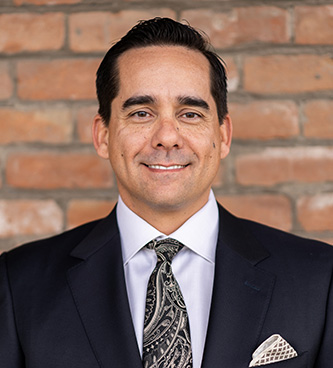
There are two terms that a person may hear in the event they are involved in a personal injury claim – “ordinary negligence” and “gross negligence.”
While the word negligence may appear in both of these terms, the fact is that these two terms mean different things altogether. Here, we want to discuss the difference between ordinary negligence and gross negligence as well as how this could play a role in a personal injury case in Phoenix.
In most situations, people are required to take reasonable precautions so that their actions will not cause harm to others. These various precautions constitute what is called a “duty of care.”
The duty of care that one person owes to another will look different depending on the relationship between the people involved. For example, a grocery store owner or operator will owe a duty of care to provide reasonably safe premises so that guests and visitors do not sustain injuries.
A doctor owes a specific duty of care to their patients. After a doctor-patient relationship has been established, the doctor is required to treat the patient with an adequate level of care, which is generally taken to mean the level of care that a similarly trained doctor would provide the patient in similar circumstances.
Drivers on the roadway have a responsibility (duty of care) to operate their vehicles safely in order to protect others around them, including those in other vehicles as well as pedestrians and bicyclists.
Anytime the person fails to take reasonable precautions that another prudent person would take, and if their actions cause someone else harm, this could be considered ordinary negligence. In cases of ordinary negligence, the responsible party does not necessarily mean to cause harm to another person. However, just because a person does not intend to cause harm to another individual does not mean that they cannot be held legally responsible. They can.
When a person is harmed due to the ordinary negligence of another individual, the injury victim will typically be able to recover compensation through a personal injury lawsuit. This can include coverage of medical bills, lost income, out-of-pocket expenses, pain and suffering damages, and more.
Gross negligence is different than ordinary negligence. Gross negligence refers to the extreme indifference or reckless disregard for the safety of others. This is much more than simple carelessness or a failure to act. In general, gross negligence refers to willful behavior that a person knows is likely to cause harm to other individuals. Some examples of gross negligence include the following:
When a person is injured due to the gross negligence of another individual, the amount of compensation they are able to recover will likely be increased and could even include punitive damages intended to punish the grossly negligent party.
If you or somebody you care about has been injured due to the careless or negligent actions of somebody else, you need to work with an attorney who can help secure compensation for your claim. These cases can become complicated, but an attorney can use their resources and legal expertise to properly evaluate every aspect of the claim. An attorney at Torgenson Law will be able to uncover whether or not ordinary negligence or gross negligence was involved and help properly calculate the total expected losses.

John Torgenson is a highly experienced personal injury lawyer with over 20 years of practice in Arizona. He earned his Bachelor’s degree from the University of Utah and his Juris Doctor from Notre Dame. John has a proven track record of securing substantial verdicts and settlements, including an $8.25 million recovery for a gunshot injury victim. His expertise has earned him AVVO ratings and recognition as a Super Lawyer.
John is also a sought-after lecturer on personal injury law, sharing his extensive knowledge with peers and aspiring attorneys. Beyond his legal practice, John is an avid golfer and actively supports organizations like the Military Assistance Mission, Arizona School for the Arts, Page Balloon Regatta, University of Arizona Foundation, Junior Achievement of Arizona, and the Tim Huff Pro Bono Golf Classic.
Passionate about advocating for injury victims, John dedicates his career to battling insurance companies and corporate interests, ensuring that the rights of those who are hurt are vigorously defended.
